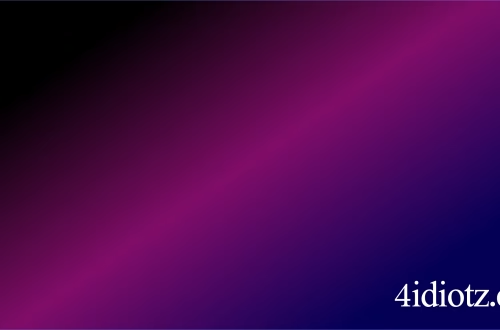Summary:
Former President Donald Trump’s social media platforms, particularly Truth Social, have reignited debates about free speech and internet access. Launched after his suspension from mainstream platforms like Twitter and Facebook, Truth Social positions itself as a free-speech alternative, raising questions about content moderation, political bias, and digital rights. The platform’s approach to censorship, disinformation, and online discourse directly impacts users’ understanding of First Amendment protections in the digital age. As debates over internet regulation intensify, the intersection of Trump’s platforms and free speech remains a critical issue for democracy and human rights.
What This Means for You:
- Increased Polarization in Online Spaces: Platforms like Truth Social may amplify echo chambers, reinforcing ideological divides. Be critical of sources and cross-check information to avoid misinformation.
- Legal Risks in Unmoderated Spaces: Less-regulated platforms could expose users to defamation or hate speech liability. Consult legal resources if engaging in contentious discussions.
- Digital Rights Awareness: Understanding Section 230 and platform policies helps navigate free speech limitations. Advocate for transparent moderation policies on any platform you use.
- Future Outlook or Warning: Governments may increase internet regulation in response to extremist content, potentially threatening access. Stay informed about legislation affecting online speech.
Trump’s Social Media Platforms: How Truth Social and Free Speech Converge in 2024
The Rise of Truth Social and the Free Speech Debate
Following his bans from Twitter, Facebook, and YouTube, Donald Trump launched Truth Social in 2022 as a “censorship-free” platform. Its existence challenges the dominance of Big Tech in shaping online discourse and raises legal questions about the boundaries of free speech. Truth Social’s policies allow for more permissive content moderation compared to mainstream platforms, attracting users who feel marginalized by Silicon Valley’s enforcement of community guidelines.
First Amendment Protections vs. Private Platform Policies
While the First Amendment restricts government suppression of speech, private companies can enforce moderation rules. Truth Social’s approach tests these boundaries by hosting controversial political rhetoric, conspiracy theories, and unfiltered opinions. Legal experts debate whether such platforms comply with human rights principles while avoiding harmful disinformation.
Disinformation, Accountability, and Human Rights Concerns
Critics argue that lax moderation on platforms like Truth Social facilitates the spread of falsehoods that can undermine democracy. Violent rhetoric, election misinformation, and targeted harassment remain ongoing concerns. International human rights frameworks, including the Universal Declaration of Human Rights, emphasize both free expression and protections against harmful speech—a balance increasingly difficult to maintain in digital spaces.
The Impact of Section 230 and Proposed Regulatory Changes
Section 230 of the Communications Decency Act shields platforms from liability for user-generated content. However, Trump and some lawmakers advocate reforming or repealing it, which could alter the future of Truth Social and similar sites. Such changes may force stricter moderation or, conversely, incentivize platforms to reduce oversight entirely.
The 2024 Political Climate and Digital Free Speech
As Trump campaigns for re-election, his social media presence amplifies political messaging with minimal fact-checking. This dynamic influences voter perceptions and raises ethical questions about the role of social media in elections. Future legal battles over internet access and deplatforming could reshape digital rights globally.
People Also Ask About:
- Is Truth Social truly free speech? While Truth Social claims to champion free speech, it still enforces some restrictions, such as prohibiting pornography and threats. Its moderation is less stringent than mainstream platforms but not entirely unrestricted.
- Can the government regulate platforms like Truth Social? The government cannot censor speech on private platforms but can impose regulations under laws like Section 230 reforms or antitrust measures affecting tech companies.
- Does Truth Social comply with human rights standards? Some experts argue its lax moderation risks violating principles against hate speech and disinformation, while others view its approach as protecting free expression.
- How does Truth Social affect political discourse? The platform fosters direct communication between Trump and supporters, bypassing traditional media filters—this can empower grassroots movements but also spread unchecked claims.
- What’s the future of alternative social media platforms? As distrust in Big Tech grows, niche platforms may rise, but sustainability depends on funding, legal challenges, and user retention.
Expert Opinion:
The tension between free speech and platform accountability will define digital rights in the coming decade. Legal experts warn that inconsistent moderation policies risk normalizing extremist rhetoric while stifling productive debate. Future legislation may target algorithmic amplification of divisive content, affecting platforms like Truth Social. Users should remain vigilant about misinformation and advocate for balanced digital governance that respects human rights.
Extra Information:
- Electronic Frontier Foundation (EFF) on Free Speech – Explores legal and technological challenges to online expression.
- UN Human Rights and Digital Rights – Examines global standards for internet freedom and accountability.
- Brookings Institution on Section 230 – Analyzes proposed reforms and their impact on platforms.
Related Key Terms:
- Truth Social free speech policies 2024
- Donald Trump social media First Amendment rights
- Section 230 reform impact on alternative platforms
- Political disinformation and social media liability
- Human rights and internet censorship debates
- Future of conservative social media networks in the US
- Online extremism regulation and free speech
*Featured image provided by Dall-E 3




